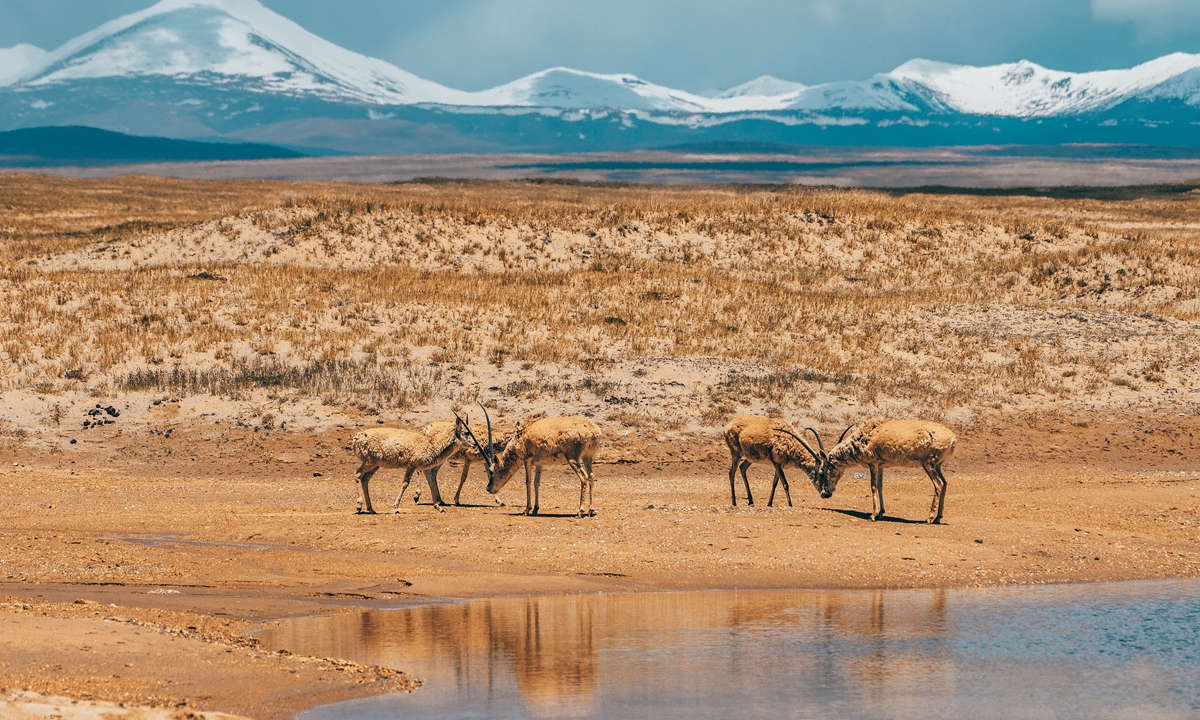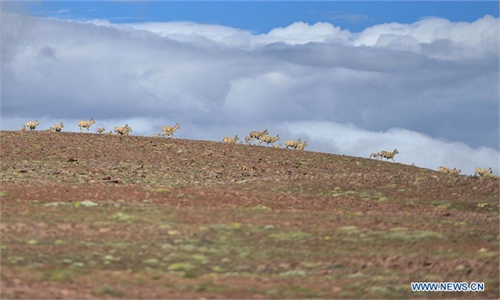Unauthorized entry to Hoh Xil banned for safety and ecological concerns
Unauthorized entry to Hoh Xil banned for safety and ecological concern

Hoh Xil Photo:VCG
All groups and individuals will now be prohibited from traveling from Golmud city, northwest China's Qinghai Province through to the Hoh Xil National Nature Reserve for tourism, expeditions, and illegal crossings before admission is granted. Those who intend to travel through the area must first go to the relevant public security organs for registration, according to a notice issued by the Qinghai Golmud City Public Security Bureau on September 4.
Hoh Xil National Nature Reserve is the third largest isolated region in the world. It also has an average altitude of 4,600 meters.
Expeditions and illegal crossings could destroy the fragile plateau's ecological environment and endanger the lives of travelers due to the region's wild animals and extreme climate, local authorities warned.
The entry ban comes after a number of inexperienced travelers have had trouble upon trekking into the area.
On Wednesday, the Qinghai Hoh Xil protection team rescued a missing person who was camping in Hoh Xil, marking the third missing persons case reported in just two months.
On August 25, police confirmed that a young man, surnamed Li, from Central China's Henan Province, who had been missing in Hoh Xil, had died. The police have since rejected the possibility of homicide.
On August 1, police in Golmud confirmed that a female college student from Nanjing in East China's Jiangsu Province, who had been reported missing since early July, died in Hoh Xil. She was believed to have entered the isolated region for the purpose of "finding peace."
Chinese netizens showed their support for the ban after it was released, believing it could help prevent unnecessary deaths caused by people's ignorance of nature.
"The isolated region has poems and dreams, but also fear and death," commented one Chinese netizen named juanjuanyizhizaidengni on China's Tiwtter-like Weibo.
"I strongly support the ban for the sake of protecting the natural environment, while it will also ensure everyone's safety. I hope people can be responsible for themselves," commented another internet user named shinuomounv.

